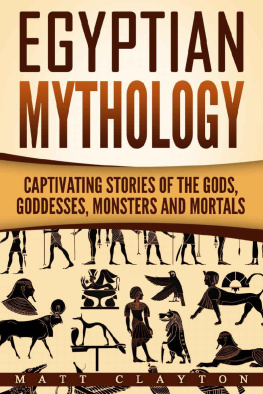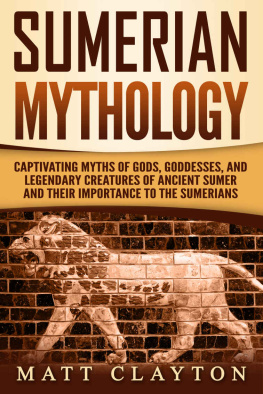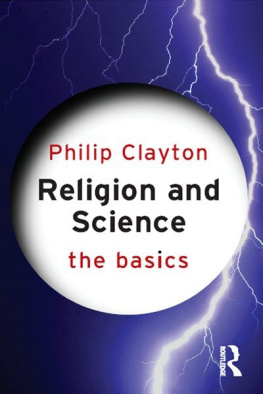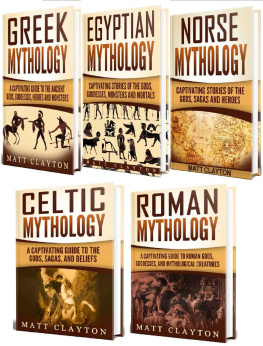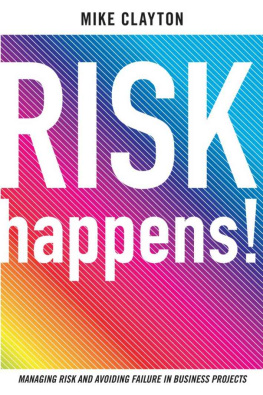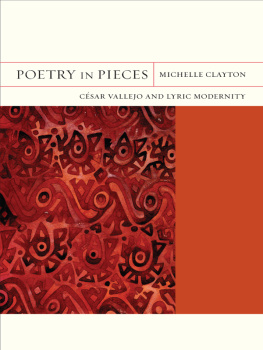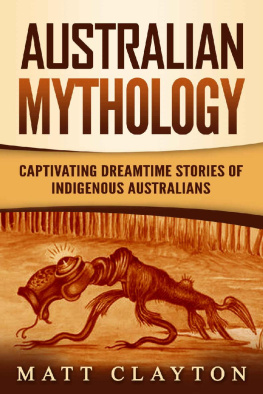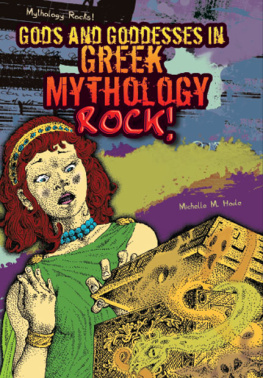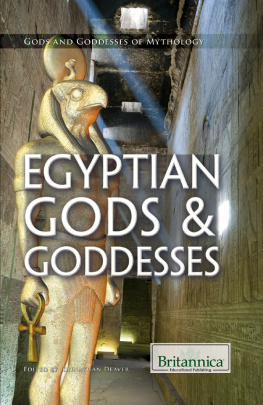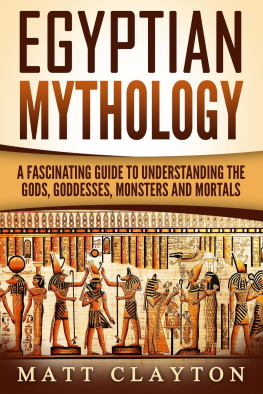Clayton - Egyptian Mythology: Captivating Stories of the Gods, Goddesses, Monsters and Mortals
Here you can read online Clayton - Egyptian Mythology: Captivating Stories of the Gods, Goddesses, Monsters and Mortals full text of the book (entire story) in english for free. Download pdf and epub, get meaning, cover and reviews about this ebook. year: 2017, genre: Religion. Description of the work, (preface) as well as reviews are available. Best literature library LitArk.com created for fans of good reading and offers a wide selection of genres:
Romance novel
Science fiction
Adventure
Detective
Science
History
Home and family
Prose
Art
Politics
Computer
Non-fiction
Religion
Business
Children
Humor
Choose a favorite category and find really read worthwhile books. Enjoy immersion in the world of imagination, feel the emotions of the characters or learn something new for yourself, make an fascinating discovery.
Egyptian Mythology: Captivating Stories of the Gods, Goddesses, Monsters and Mortals: summary, description and annotation
We offer to read an annotation, description, summary or preface (depends on what the author of the book "Egyptian Mythology: Captivating Stories of the Gods, Goddesses, Monsters and Mortals" wrote himself). If you haven't found the necessary information about the book — write in the comments, we will try to find it.
Clayton: author's other books
Who wrote Egyptian Mythology: Captivating Stories of the Gods, Goddesses, Monsters and Mortals? Find out the surname, the name of the author of the book and a list of all author's works by series.
Egyptian Mythology: Captivating Stories of the Gods, Goddesses, Monsters and Mortals — read online for free the complete book (whole text) full work
Below is the text of the book, divided by pages. System saving the place of the last page read, allows you to conveniently read the book "Egyptian Mythology: Captivating Stories of the Gods, Goddesses, Monsters and Mortals" online for free, without having to search again every time where you left off. Put a bookmark, and you can go to the page where you finished reading at any time.
Font size:
Interval:
Bookmark:
Copyright 2015
All rights Reserved. No part of this book may be reproduced in any form without permission in writing from the author. Reviewers may quote brief passages in reviews.
Disclaimer
No part of this publication may be reproduced or transmitted in any form or by any means, mechanical or electronic, including photocopying or recording, or by any information storage and retrieval system, or transmitted by email without permission in writing from the publisher.
While all attempts have been made to verify the information provided in this publication, neither the author nor the publisher assumes any responsibility for errors, omissions or contrary interpretations of the subject matter herein.
This book is for entertainment purposes only. The views expressed are those of the author alone, and should not be taken as expert instruction or commands. The reader is responsible for his or her own actions.
Adherence to all applicable laws and regulations, including international, federal, state and local laws governing professional licensing, business practices, advertising and all other aspects of doing business in the US, Canada, UK or any other jurisdiction is the sole responsibility of the purchaser or reader.
Neither the author nor the publisher assumes any responsibility or liability whatsoever on the behalf of the purchaser or reader of these materials. Any perceived slight of any individual or organization is purely unintentional.
Table of Contents
Free bonus from Captivating History!

Click here to access your bonus
Introduction: Egypt in Context
Mention the name Egypt to most anyone with at least a high school education and it conjures up pictures of the desert, the Nile, palm trees, pyramids and the Sphinx. Today, Egypt is a third-world country rich with petroleum (16% of the nations economy in 2011), tourism (20%) and industry (20%). The country even makes a substantial income (3%) from their Suez Canal which allows shipping to bypass having to go around Africa for transporting goods between Europe and the Far East.
For the first three thousand years of humanitys shared history, Egypt played a pivotal role in the affairs of man. Its Nile Valley and Delta were one of the cradles of civilization where an organized and settled society was born. The other cradles were found in,
Mesopotamiasurrounding the Tigris and Euphrates Rivers (modern Iraq),
Indus Valleysurrounding the Indus River (modern Pakistan),
Chinasurrounding the Yellow River,
Central Andes (modern Peru), and
Mesoamerica.
Of these six, Egypt and Mesopotamia compete for first place. Both of these regions also vie for first as the birthplace of writing. The Andes and Indus River regions came hundreds of years later. And the earliest known inklings of civilization came more than a thousand years later in China and Mesoamerica.
Humans have been around for at least 200,000 years, so why did civilization start in six different locations so closely spaced in time? It all has to do with climate change.
Egypt and Climate
Egypt has been a nation in one form or another for over five thousand years, all because of the prosperity afforded it by the Nile River and the yearly flooding which made it a center of agriculture. But it wasnt always this way.
We live in an Ice Age which started 2.6 million years ago when both poles had gained ice which persisted throughout the year. Our current interglacial, the Holocene, is one of the dozens of interglacials this Ice Age has seen.
Interglacial periods are relatively short spans of comparative warmth where the polar glaciation recedes. The average interglacial, according to climate scientist W.S. Broecker, is about 11,000 years long. The Holocene is already at least 11,500 years old, so it is older than average. Glacial periods are far longer, averaging 90,000 years in duration. Glacials are brutal on life. Not only is life hard hit by the cold, but cooler oceans make rain scarce, so plants and animals easily die of thirst. Cooler oceans also make carbon dioxide far more scarce in the atmosphere, making it harder for plants to grow.
In the 60s and early 70s, Dr. James Lovelock explored the notion of a lower limit for CO below which plant life would start to die out. In fact, 15,000 BC, CO levels came to within 30 parts-per-million of Lovelocks threshold for mass extinction. Rod Martin, Jr. discusses this in his book, Red LineCarbon Dioxide . Then, about 10,000 BC, massive global warming suddenly made civilization possible. It did this not only by creating more life-affirming warmth, but also by making rain more abundant, and by forcing dissolved carbon dioxide from the oceans back into the atmosphere. All three of these ingredientswarmth, rain and CO made agriculture possible. Without these, growing food on a large scale would have been next to impossible.
Widespread rain was not immediately available, but rain in the highlands of Africa made the Nile River more abundant with water. There have been signs of early agriculture in the Lower Nile Valley as far back as 9,000 BC, but these did not seem to persist. The early part of the Holocene interglacial saw a period of about 3,000 years that was far warmer than our modern warm periodThe Holocene Optimum. That greater warmth not only evaporated more water from the oceans, making rain more abundant, a monsoon pattern developed which regularly watered the Sahara, making it green for nearly three millennia. When the Earth cooled, the Sahara once again became a deep, harsh desert. Nomads sought sources of water, many of them settling in the Nile Valley. Not long afterward, the population grew sufficiently to start off what we know of as civilization.
Science and Humility
There is a great deal we do not know about the past, including about Egypt. Not every bit of writing, and not every artifact has been unearthed. And that pertains only to the objects which remain available for us to find. There may be large portions of the past for which evidence no longer exists.
Scientists are required to hold restraint on that great unknown. They call their attitude skepticism, but this is not quite accurate, according to science philosopher, Rod Martin, Jr. The active ingredients in discovery are restraint, humility and a hunger to know the relative truth of a topic. Scientific method tells us that we should remain unbiased, yet skepticism contains the potent, negative bias of doubt. This works well to counterbalance the natural, positive bias found in fresh college graduates. Many of us fancy ourselves as great problem solvers, but too frequently our first inclinations are wrong simply because we dont yet have sufficient information. Skepticism helps to keep us from jumping to an early conclusion, but its still a bias.
According to Martin, unfortunately, objective skepticism frequently descends into subjective forms like unsupported dismissiveness and even self-indulgent ridicule. These only get in the way of discovery.
What does this have to do with Egypt? Currently, the study of ancient Egypt belongs to a club of self-proclaimed Egyptology experts. If you dont belong to this club, the Egyptian government will frown upon independent investigations. Naturally, this benefits the field by helping to keep it neat and tidy, but new discoveries are quite often anything but orderly. Anyone entertaining wildly new ideas not held by club members is dismissed quite frequently without the need for rigorous support for that dismissal. In other words, even good evidence can become dismissed simply because it doesnt fit the current dogma. This more self-indulgent and subjective form of skepticism quashes discovery and the advancement of science.
Font size:
Interval:
Bookmark:
Similar books «Egyptian Mythology: Captivating Stories of the Gods, Goddesses, Monsters and Mortals»
Look at similar books to Egyptian Mythology: Captivating Stories of the Gods, Goddesses, Monsters and Mortals. We have selected literature similar in name and meaning in the hope of providing readers with more options to find new, interesting, not yet read works.
Discussion, reviews of the book Egyptian Mythology: Captivating Stories of the Gods, Goddesses, Monsters and Mortals and just readers' own opinions. Leave your comments, write what you think about the work, its meaning or the main characters. Specify what exactly you liked and what you didn't like, and why you think so.

